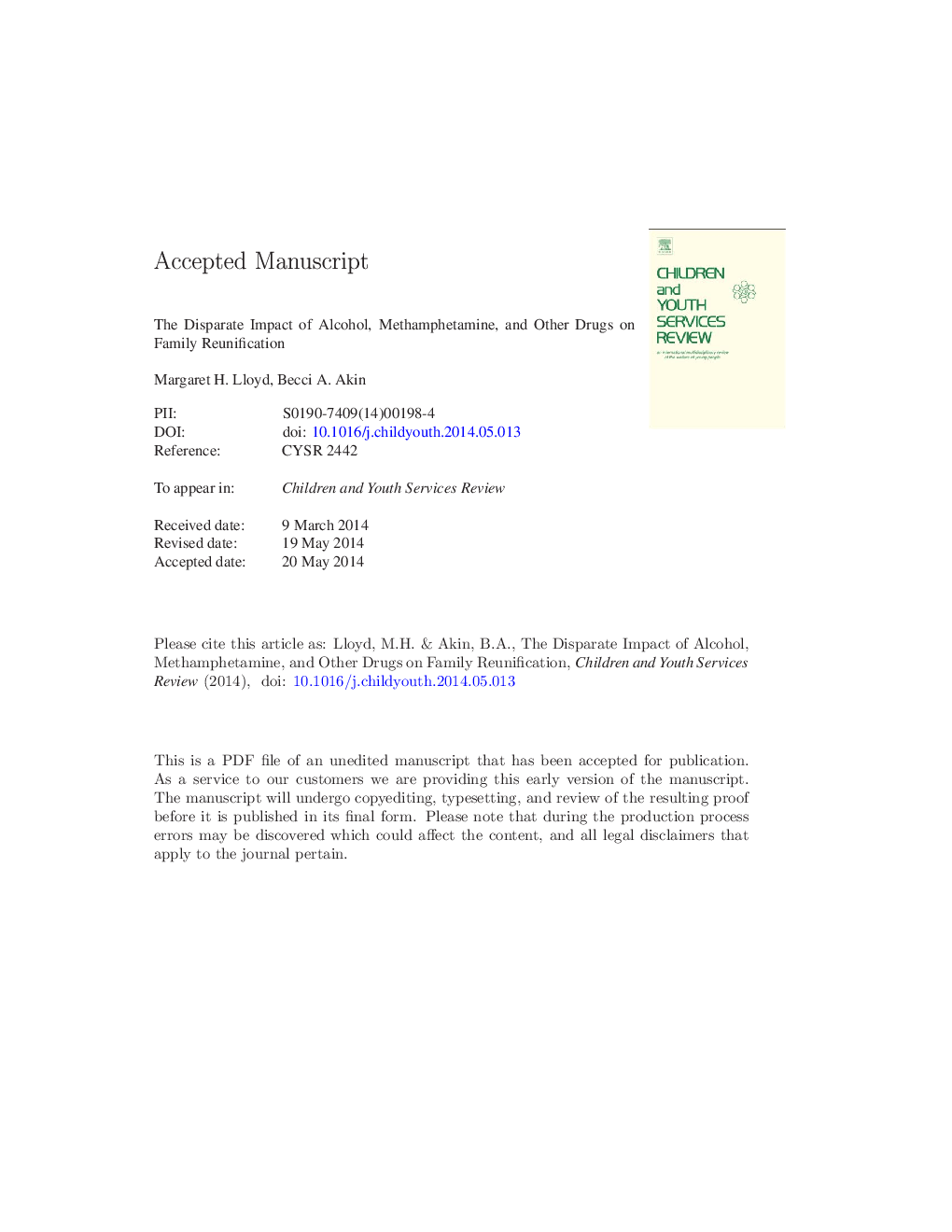| Article ID | Journal | Published Year | Pages | File Type |
|---|---|---|---|---|
| 6834212 | Children and Youth Services Review | 2014 | 46 Pages |
Abstract
Parental substance abuse is one of the most prominent reasons that children enter foster care. The relative role of substance type in delaying reunification has remained elusive. This study sought to understand the impact of parental use of alcohol, methamphetamine, other drugs, and poly-substances on reunification rates for children in foster care. The authors used administrative foster care data from a Midwestern state between years 2007 and 2012 to evaluate the unique contribution of each substance use domain. Results suggest that parental methamphetamine use has the most significant impact on the likelihood of reunification, followed by other drugs, and poly-substances. These findings further indicate that children removed due to any parental drug use stay in foster care for an average of 49-156Â days longer than their peers. Implications for research and practice are addressed.
Related Topics
Health Sciences
Medicine and Dentistry
Perinatology, Pediatrics and Child Health
Authors
Margaret H. Lloyd, Becci A. Akin,
